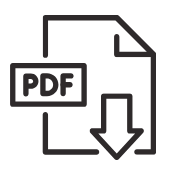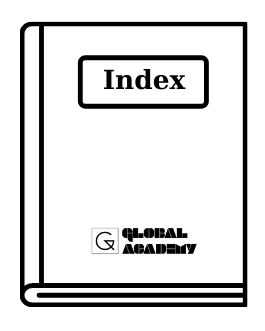Innovative Teaching Learning Practices A Paradigm Shift
Edited by
Prof. (Dr.) Pramod Kumar
Prof. (Dr.) Anviti Gupta
Prof. Anna O. Budarina


Dear Esteemed Readers,
It is with immense pleasure and a sense of pride that I present to you this pioneering book, “Innovative Teaching Learning Practices: A Paradigm Shift,” meticulously compiled and organized by the Sharda School of Humanities and Social Sciences. In the rapidly evolving landscape of education, it becomes imperative to constantly revisit and revitalize our teaching and learning methodologies. This book serves as a beacon of innovative practices, reflecting our commitment to excellence and our relentless pursuit of knowledge in the ever-changing world of education. The Sharda School of Humanities and Social Sciences, known for its forward-thinking approach and academic rigor, has always been at the forefront of educational innovation. This book is a testament to our unwavering dedication to creating an enriching learning environment that not only nurtures intellectual growth but also fosters critical thinking and creative problem-solving skills among our students. You will find a collection of insightful articles, case studies, and research papers contributed by distinguished educators and scholars in this book. Each chapter is a unique exploration of novel ideas and strategies aimed at enhancing the teaching and learning experience. As we navigate through the challenges and opportunities of the 21st century, it is essential to embrace change and adapt to new educational paradigms. This book is not just a compilation of ideas; it is a call to action for educators, students, and policymakers to collaboratively work towards creating a more dynamic, inclusive, and effective educational ecosystem.
I commend the editors, contributors, and all those involved in bringing this significant work to fruition. May this book inspire you to embark on your own journey of Educational transformation and excellence.
With warm regards,
Prof. Dr. Sibaram Khara
Introduction
Innovative teaching and learning represent a paradigm shift in education, transforming the traditional methods of instruction and assessment into more dynamic, student-centered, and technology driven approaches. This shift is driven by the recognition that the world is evolving rapidly, and education must adapt to meet the needs of a changing society and prepare students for the challenges of the 21st century. In traditional teaching, the focus is often on the teacher as the primary source of knowledge, and students are passive recipients. In innovative teaching, the focus shifts to the students themselves, acknowledging their individuality, interests, and learning styles. Teachers become facilitators, guiding students in their learning journey, and creating personalized learning experiences that cater to diverse needs.
Innovative teaching emphasizes hands-on, experiential learning methods over rote memorization. Students engage in real-world problem-solving, projects, simulations, and practical activities that allow them to apply theoretical concepts in meaningful contexts. This
approach enhances critical thinking, creativity, and problem-solving skills. Technology plays a central role in innovative teaching and learning. It is not just a tool for consumption but also a means for collaboration, creation, and exploration. Digital resources, Educational apps, online platforms, virtual reality, and augmented reality are used to enhance learning experiences, make learning interactive, and foster global connections. Instead of focusing solely on content delivery, innovative Teaching emphasizes the development of lifelong learning skills. These skills include critical thinking, communication, collaboration, adaptability, and digital literacy. The goal is to prepare students for a world where job roles are constantly evolving, and they need to be agile in acquiring new knowledge and skills throughout their lives.
Innovative teaching leverages data-driven insights and adaptive learning technologies to create personalized learning pathways for each student. By analyzing individual strengths and weaknesses, educators can tailor instruction to meet the specific needs of each learner, promoting better academic outcomes and fostering a love for learning. Blended learning combines traditional face-to-face instruction with online and digital components. This approach allows for flexibility in learning, enabling students to access educational resources anytime and anywhere. It also promotes self-directed learning and autonomy.
Assessment for Learning: In innovative teaching, assessment shifts from merely evaluating what students have learned to providing ongoing feedback that informs and improves their learning process. Formative assessments and authentic assessments are employed to gauge student progress and identify areas for improvement. Innovative teaching fosters collaboration among students and educators within the school environment and beyond. Technology enables connections with peers worldwide, promoting cultural awareness and cross-cultural collaboration.
Therefore, the paradigm shift in innovative teaching and learning recognizes the importance of empowering students to become active, engaged, and self-directed learners, equipping them with the skills and mindset needed to thrive in an ever-changing world. It embraces technology as an enabler of learning and encourages educators to continuously evolve their teaching practices to meet the evolving needs of their students and society as a whole.
Copyright ©, Editors
Authors : Prof. (Dr.) Pramod Kumar, Prof. (Dr.) Anviti Gupta &
Prof. Anna O. Budarina
All rights reserved. No part of this publication may be reproduced or transmitted, in any form or by any means, without permission. Any person who does any unauthorized act in relation to this publication may be liable for criminal prosecution and civil claims for damages.
First Published, 2023
ISBN: 978-625-8284-91-1
E-mail : globalyayinlari@gmail.com
Website : https://www.globalacademy.com.tr
Disclaimer: The views expressed in the book are of the authors and not necessarily of the publisher and editors. Authors themselves are responsible for any kind of plagiarism found in their chapters and any related issues found within the book.